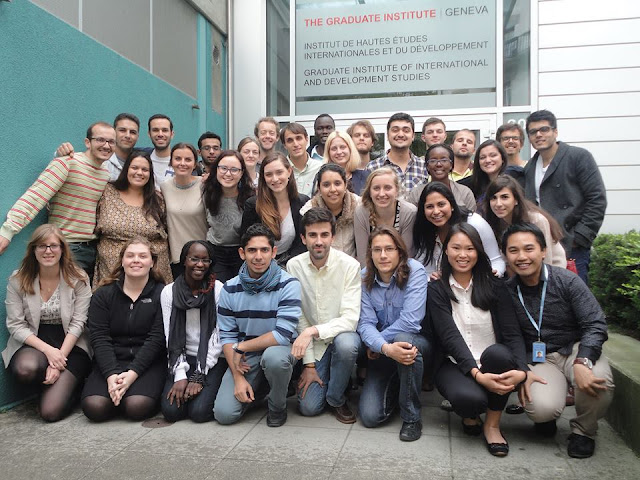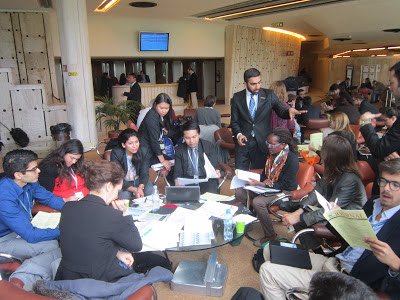It was a wonderful experience in Geneva during Pre- World Health Assembly for youth and 66th High-level World Health Assembly. This is my first-ever Health related UN conference.
I used this opportunity to collaborate with young people from all over the world who were present during pre-WHA and WHA, their different backgrounds, diverse yet energetic and unified goal “A healthier planet for a better future” inspired me. I believe this friendship may achieve a workable, practical, concrete solution for most health problems which is related to youth.
This International arena gave me an opportunity to share my views on Health on post-2015 development agenda with other youth delegates and other representatives from member states and major groups. Almost all the youth representatives were medical student, if I am not mistaken only I was from Business College. I did not had a sharp knowledge on technical terms used in health negotiations, but I was confident on my soft skills, negotiations skills, depth knowledge on post 2015 process, and youth participation in UN process. I was happy to see that although we were from different educational backgrounds, we had only one uniform objective.
Decisions made by global leaders will have global consequences. We need universal norms. No states can exist alone. As a team we arouse together for a real change. This had a huge impact on decision makers. Youth were here in Geneva at United Nations...at the 66th WHA and we made a difference, we got engage with the process, we raised our voice, we demanded for a better deal. We are dynamic, diverse yet we are working together as a unified voice for change, A Real Change!
I shared my experience and projects what we do in Sri Lanka and how it is related to the global context, meanwhile I used this opportunity to gain more knowledge on health issues and health-negotiations by attending plenaries, committees, side events, youth strategic meetings, sessions, listening to inspirations speeches during Pre-WHA and WHA.
I was involved in drafting youth position paper on “Health on Post 2015 Development Agenda” for 66th WHA, and involved in drafting interventions, which was delivered by us at the respective committees.
It was very interesting to follow the negotiations, and understand the context, although I was familiar with UN Climate Change and Sustainable Development negotiations, it took me sometime to understand the UN health talks, new terms, new approaches motivated to follow the negotiations, but I would say it was not tiring and hectic as Climate negotiations.
I was able to meet some of the big shots during WHA, specially my Minister of Health (Sri Lanka), Minister of Health from Lativia, key eminent of players/negotiators of Portugal, EU, Africa, Philippines, etc. I was able to meet some of the senior staffs of WHO and UN agencies, especially DG Ms. Margaret Chan.
As youth we have a huge responsibility to work closely with government in decision making process. This conference gave me the key aspects of policy making and international negotiations.
I was existed to be a part of International Federation of Medical Students Associations (IFMSA) delegation to 66th World Health Assembly, It was a great pleasure to be in the high level opening ceremony of the 66th World Health Assembly commenced in Geneva on 20th of May 2012 at 10am
Day 4, of the 66th World Health Assembly, May 23rd, 2013 is a historical day for IFMSA presence at WHO meetings.. The IFMSA delegation has hosted in the afternoon the first youth organized and youth-led side event at the World Health Assembly. Health of the World’s girls – The missing link in the global development agenda?
I
miss my IFMSA friends and Geneva now!
























